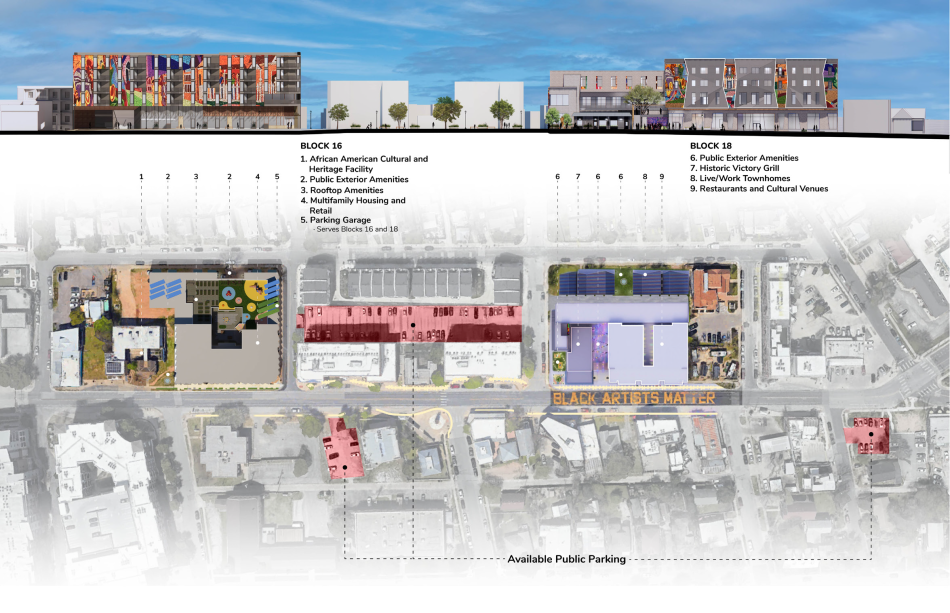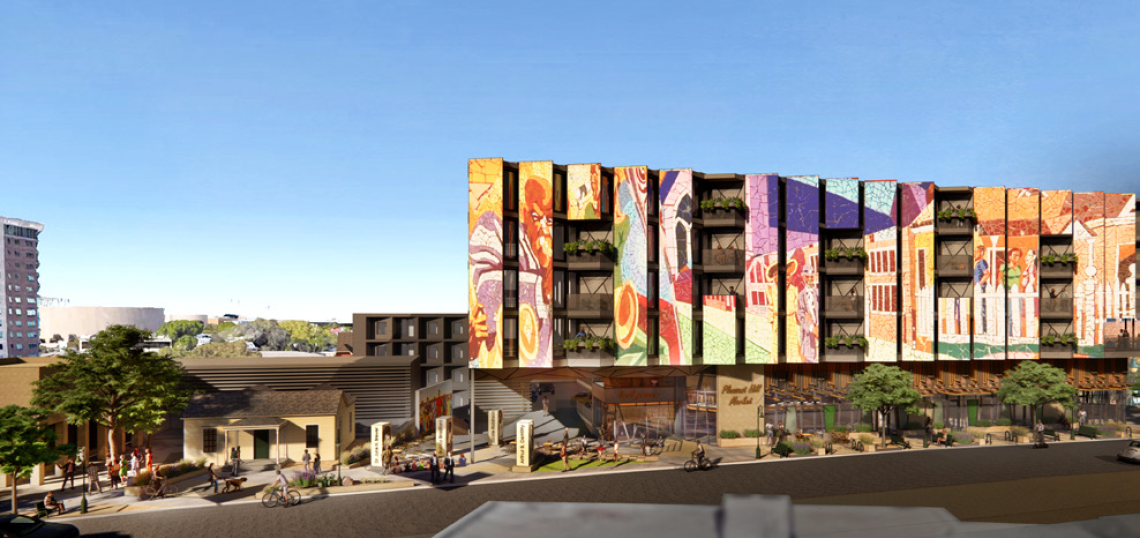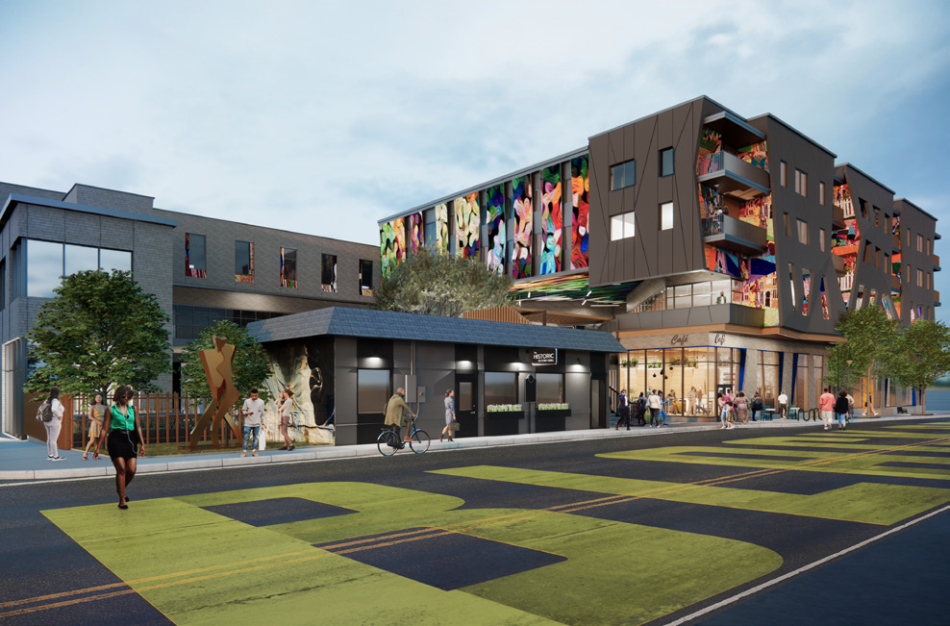Austin City Council signed off Thursday on a plan to develop two high-profile sites on East 11th Street. After decades of stalled planning efforts for the commercial strip in Central East Austin's African American Cultural Heritage District, the council authorized its Urban Renewal Agency to negotiate an exclusive agreement with the Pleasant Hill Collaborative for a mixed-use development on Blocks 16 and 18 of the historic street.
Approved plans for the 2 acres of undeveloped land just east of downtown include "public spaces designed for welcoming and the historic East Austin community,” according to a city press release. The historically Black neighborhood around the sites was home to a vibrant community that arose after the 1928 Austin City Plan institutionalized housing segregation.
 Plans include affordable housing, a cultural hub, office spaces, retail, and parking facilities.Pleasant Hill Collaborative
Plans include affordable housing, a cultural hub, office spaces, retail, and parking facilities.Pleasant Hill Collaborative
The Pleasant Hill plan includes 130 units of housing, 100 of them priced for households earning less than 50 percent of the area median family income. The group also proposes 13,000 square feet of commercial space with an emphasis on restaurants and retail; 27,000 square feet of cultural space for a music venue; working spaces; and 184 parking spaces.
Approved plans for Block 16, the 900 block between East 11th Street and Curve streets that presently serves as a dusty informal parking lot, include multifamily affordable housing, retail, a parking garage, and rooftop amenities.
Block 18, adjacent to the Victory Grill at 1104 East 11th Street will have live/work townhomes, exterior amenities, restaurants, and cultural venues.
Rally Austin, formerly the Austin Economic Development Corporation, facilitated the request for proposals process, provided technical assistance to the Urban Renewal Agency, and provided technical review of the proposals.
“This milestone for Blocks 16 & 18 marks a significant step forward in the City’s ongoing efforts to preserve cultural vibrancy, create economic opportunity, and expand affordable housing access,” said the Housing Department's Mandy DeMayo.
Pleasant Hill Collaborative includes nonprofit organization Guadalupe Neighborhood Development Corporation, Dallas-based student-housing developer Servitas, and Austin’s TOPO. It’s supported by Creative CultureWorks, Carter Design Associates, Moody-Nolan, Forgecraft Architecture, and other local firms.
Morgan Chase, Berkadia, WNC, Greystone, and Regions are potential capital partners. Additional proposal details are included in the Pleasant Hill Collaborative presentation.
Pending negotiation and financing approvals, construction for the sites is expected to begin in 2025 with a grand opening for Phase 1 in 2027 and Phase II complete in 2029.







